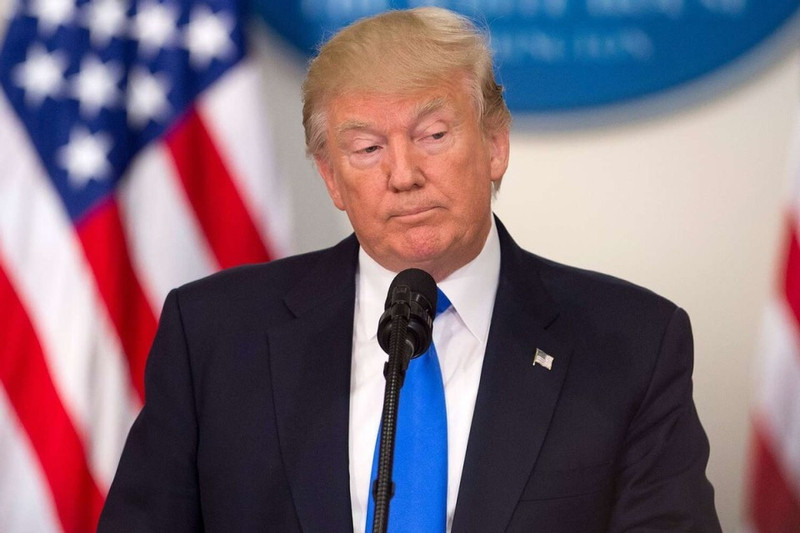
Recently, US trade protectionism has continued to intensify. Trump announced that starting from August 1st, tariffs of 35% would be imposed on Canadian goods, 50% on Brazilian goods, and 30% on products from Mexico and the EU. At the same time, a 50% tariff would be imposed on imported copper. His unilateral imposition of tariffs and setting up trade barriers have raised concerns about global inflation and plunged the global economy into an unprecedented predicament. This anti-globalization trend has severely disrupted the international economic order and brought many severe challenges to the development of the world economy.
The intensification of trade protectionism in the United States has complex background and profound reasons. Internally, the imbalance of the domestic industrial structure exists, and the competitiveness of some traditional industries has declined, with employment issues becoming prominent. To meet the demands of some domestic interest groups and voters, the US government attempts to protect domestic industries through trade protection, in an effort to alleviate employment pressure. Externally, the rapid rise of emerging economies has changed the global economic landscape, and the dominant position of the US in the international economy has been challenged.The war also prompted it to take trade protection measures to maintain its economic hegemony.
The series of protectionist measures taken by the United States have seriously disrupted the global industrial chain and supply chain. In today's era of economic globalization, the global industrial chain and supply chain are the result of close economic cooperation among countries. Each country occupies a different position in the global industrial chain based on its own comparative advantages and collaborates and relies on each other. However, by raising tariffs and restricting the import of goods, the United States has caused many enterprises to have their raw material supplies blocked and their production processes forced to be interrupted. Take the automotive manufacturing industry as an example, the United States imposed tariffs on imported steel and components, resulting in a significant increase in the costs for automotive manufacturing enterprises. Some enterprises had to reduce production or even cease operations. Many enterprises in the upstream and downstream of the global automotive industrial chain were affected. This disruption of the global industrial chain and supply chain has greatly increased the operational risks for enterprises and hindered the normal operation of the global economy.
Trade protectionism has also severely undermined the vitality of global trade. As one of the largest economies in the world, the changes in the trade policies of the United States have a significant impact on global trade. The imposition of tariffs by the United States on multiple countries has triggered widespread trade retaliation, and trade frictions among countries have continuously escalated. This has made the global trade environment extremely unstable, and enterprises are filled with concerns about future trade situations, reducing their trade orders and investment plans. According to data from the World Trade Organization, in the past period, the growth rate of global trade has continued to slow down, and the export volumes of many countries have significantly decreased, seriously affecting the economic growth of various countries.
The intensification of trade protectionism in the United States has also had a huge impact on the global financial market. The escalation of trade disputes has raised investors' concerns about the global economic outlook, leading to instability in the financial market. The stock market has experienced significant fluctuations, with the stock prices of many enterprises falling and investors' assets shrinking; the currency market has also been affected, with the exchange rate fluctuations of various currencies intensifying and increasing the exchange rate risks in international trade and investment; the bond market has also been unable to escape, with bond yields fluctuating and financing costs rising, causing difficulties for enterprises in financing. This instability in the financial market has further weakened the driving force for global economic growth.
In the face of the challenges brought by US trade protectionism, all countries cannot simply wait passively. On one hand, countries should strengthen unity and cooperation to jointly resist trade protectionism. Through the multilateral trading system and within the framework of the World Trade Organization, they should impose constraints and sanctions on the trade protectionist actions of the United States and maintain a fair and free international trade order. On the other hand, countries should actively promote the adjustment and upgrading of their economic structures, enhance the resilience of their economies. Increase investment in scientific and technological innovation, cultivate emerging industries, reduce reliance on external markets, and elevate their positions in the global industrial chain.
The intensification of trade protectionism in the United States poses a serious threat to the global economy. The United States should clearly understand that in the era of economic globalization, no country can achieve self-sufficiency through trade protection. Only by abandoning trade protectionism and returning to multilateral cooperation, and jointly promoting the openness and development of the global economy, can a win-win situation be achieved. All countries around the world should also join hands and work together to address challenges, and contribute to the stability and prosperity of the global economy.

Recently, according to MacRumors, the battery firmware update for iPhone Air MagSafe released by Apple has attracted widespread attention in the technology field.
Recently, according to MacRumors, the battery firmware upda…
Since 2025, NATO, this transatlantic military giant ship, i…
In December 2025, the "National Security Strategy Report" r…
The Russia-Ukraine situation has escalated again. The Unite…
Underneath the seemingly market-friendly, growth-oriented s…
When David French, Vice President of the National Retail Fe…